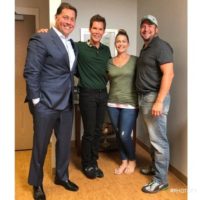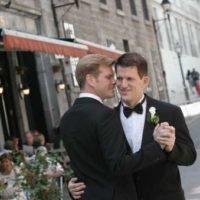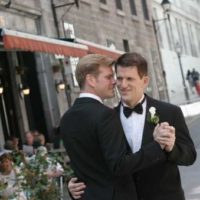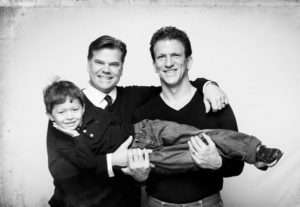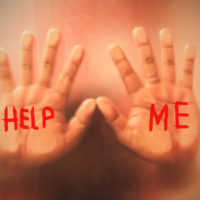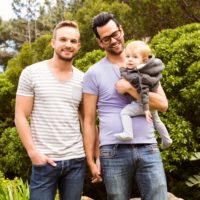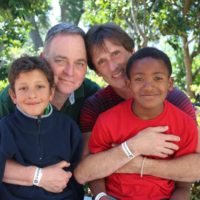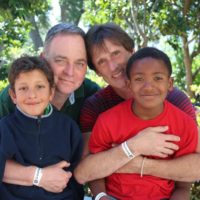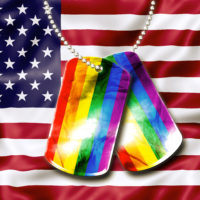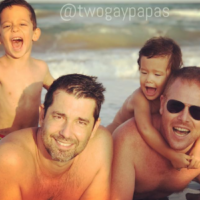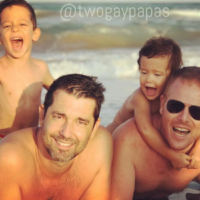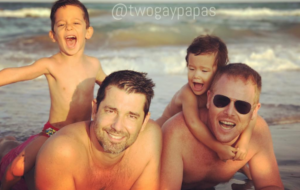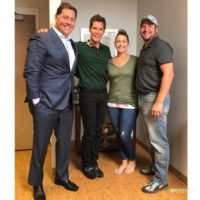
Christina Fenn and her husband, Brian, have driven an hour and a half to this quaint coffee shop in Monroe, Conn. Fenn sips her morning latte, skittishly glancing out the window at the parking lot. “I’m nervous,” she says, grabbing her husband’s arm. “Nervous-excited, though.” He smiles back.
She’s wearing green, her lucky color. Green shirt and green jacket, green bracelets, green socks. She feels as if she needs all the luck she can get today.
“They’re here,” her husband says, standing to greet two men walking toward them.
Bill Johnson and Kraig Wiedenfeld have been a couple for 18 years and married for four. Everyone embraces warmly.
They’re an unlikely foursome: two gay men from the Upper East Side of New York and a small-town husband and wife who met when they both were 20 at a Dunkin’ Donuts.
By lunchtime, if all goes as planned, Christina Fenn will be pregnant with Johnson and Wiedenfeld’s son. An embryo created from Wiedenfeld’s sperm and an egg from an anonymous donor will be thawed and transferred into Fenn’s uterus, and she will be considered “PUPO” — pregnant until proven otherwise.
“Let’s go have a baby!” says Wiedenfeld. They all smile nervously.
The couples drive in separate cars to CT Fertility, a clinic five minutes down the road.
This isn’t Fenn’s first time at the clinic. She has proudly carried three babies — including a set of twins — as a surrogate for two other same-sex couples. She heads to Exam Room 3, while Johnson and Wiedenfeld go to a waiting area until it’s time for the transfer.
“You have a beautiful embryo hatching,” says CT Fertility physician Melvin Thornton, sitting down with the dads-to-be.
by Sydney Page, Washington Post – September 8, 2018
Click here to read the entire article.
The post They were gay and wanted a baby. She loved being pregnant. They made a deal. appeared first on Time For Families.
Source: Time for Families
